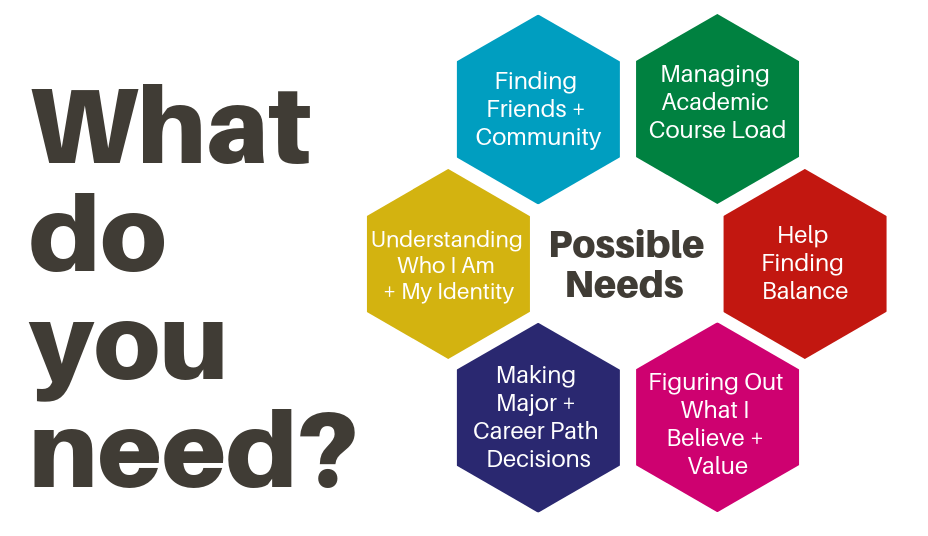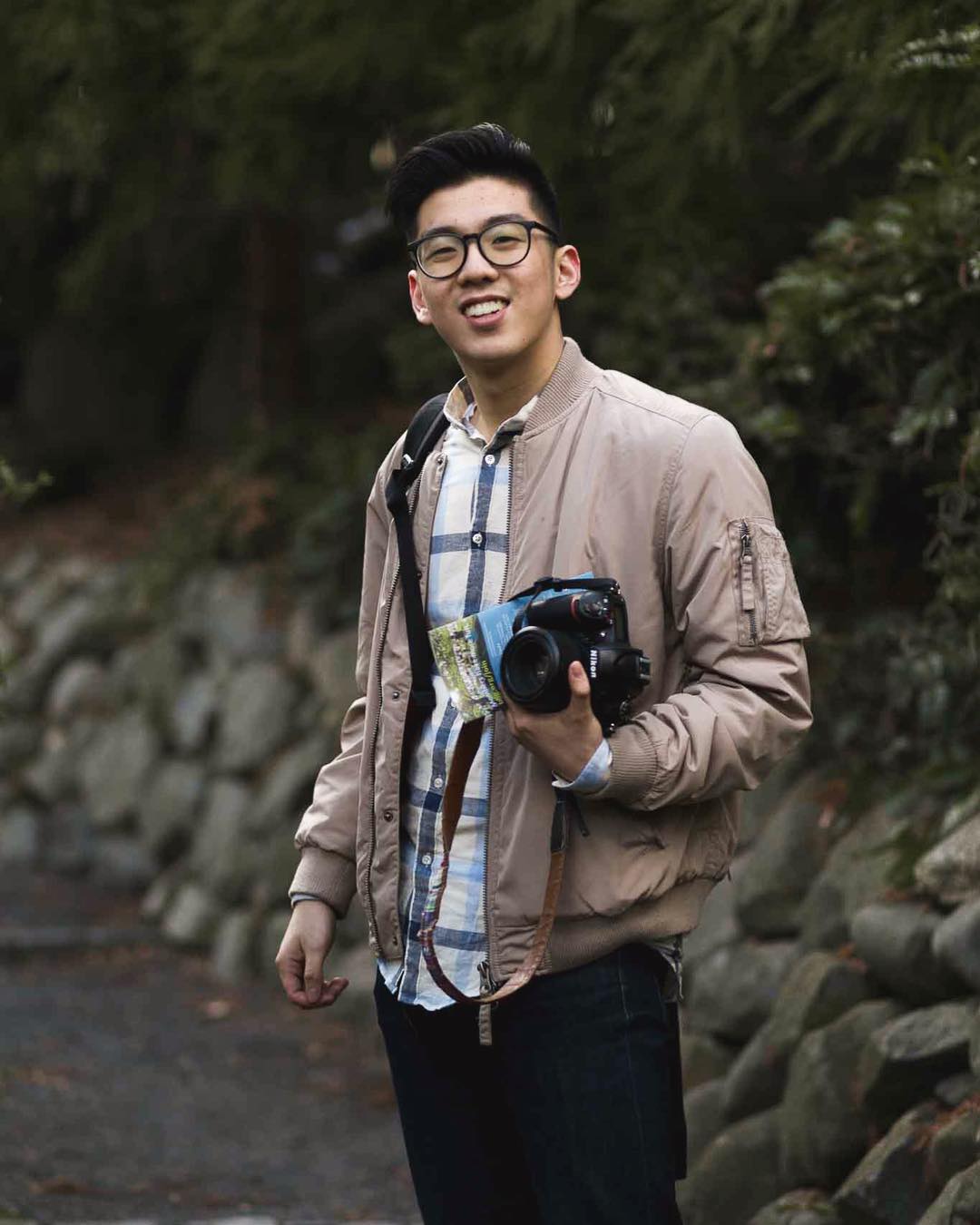Who Are Your People?

Consider what needs you may have before you identify who can best support you. What you need may be around getting connected to the Wake Forest community socially. Or, maybe you’re grappling with decisions around choosing a major/minor or career path. Whatever your needs are, what’s important is that they are yours and that you take the time to identify them.
Take a minute and write down 2-3 needs that you have.
Ask yourself:
- Where are the areas in my life in which I’m struggling?
- Where could I use some direction, wisdom, and guidance?

Now that you’ve identified what you need, download this worksheet to begin identifying who you can talk to about what you need. Also, this gives you an opportunity to determine any gaps in your network of people. Use the chart below for examples.

- Roommate or suitemates
- Peers with similar interests
- Resident adviser
- Student academic adviser
- Campus Life
- University Counseling Center
- Trusted faculty or staff member

- University Counseling Center
- Office of Wellbeing
- Deacon Health
- Chaplain’s Office
- Campus Recreation
- Resident adviser
- Trusted faculty or staff member

- Student academic adviser
- Faculty academic adviser
- Academic counselor in Office of Academic Advising
- Professors (office hours)
- Center for Learning, Access, and Student Success
- Writing Center

- University Counseling Center
- Intercultural Center
- LGBTQ Center
- Women’s Center
- Office of Diversity and Inclusion
- Trusted faculty or staff member
- Trusted friend or peer

- Career coaches in the Office of Personal & Career Development
- Trusted faculty or staff member
- Student or faculty academic adviser
- Academic Counselor in the Office of Academic Advising
- Peers with similar major/career interests
- Wake Forest alumni via LinkedIn

- Chaplain’s Office
- Campus Ministries
- University Counseling Center
- Trusted faculty or staff member
- Peers with similar religious or spiritual beliefs
- Intercultural Center
- Office of Diversity and Inclusion

BE INTENTIONAL
- Reflect on your needs (step one) and the types of people/offices you need to talk to (step two)
- Think about who you already know in those places
- Make a list and identify where your gaps are
SEEK OUT AND SHOW UP
- Ask for time with those you already know
- Make an appointment, go to office hours, look for ways to engage with the offices/people who could fill your gaps
- Keep your commitments: show up, on time, prepared to discuss your needs
BE SPECIFIC ABOUT YOUR NEEDS
- Be prepared to share your needs (step one) and why they are important to you
- Be prepared to share what you have already done to work on your needs
- Be prepared to share why you think that person or office could help you
ASK QUESTIONS + SOLICIT FEEDBACK
- Ask for feedback on the steps you are taking and what you can do next
- Ask for guidance on other people or places where you can build relationships
- Ask for time for a future conversation to continue to build the relationship











Special thanks to Zack Chan (’18, MSA ’19) for contributing photographs to this project. He started photography in high school, eventually developing his passion for portraiture. He has photographed various events around the University and has been featured in Wake Forest Magazine, Wake Will Lead Campaign, and the University’s Tumblr. Zack hopes he can use photography as a lens to share stories and bring people closer together. Zack will be working as a Audit Associate at KPMG in New York starting in the fall of 2019.

